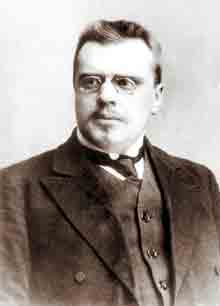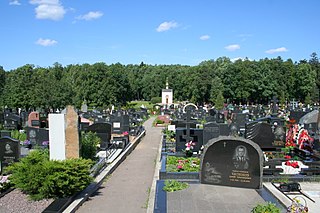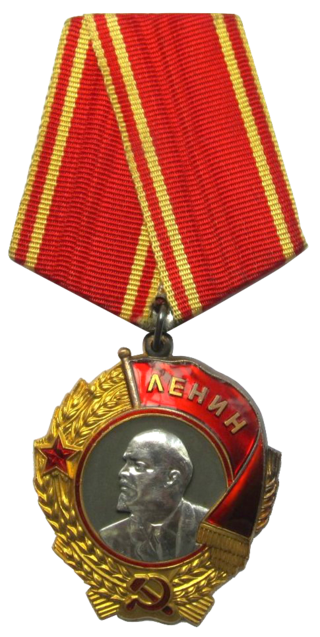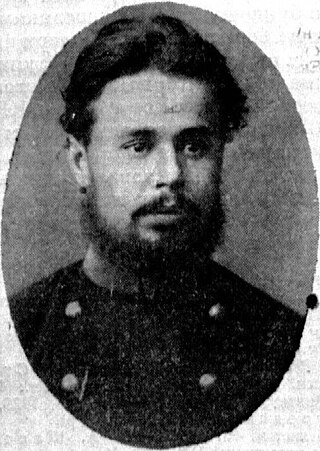
The chairman of the government of the Russian Federation, also informally known as the prime minister, is the head of government of Russia and the second highest ranking political office in Russia. Although the post dates back to 1905, its current form was established on 12 December 1993 following the introduction of a new constitution.
The Russian United Democratic Party Yabloko is a social-liberal political party in Russia. The party consequently participated in the elections of deputies of the State Duma of the Federal Assembly of the Russian Federation of all eight convocations. Until 2003, Yabloko was represented by a faction in the State Duma and later until 2007 by individual deputies. In March 2002, the party became a full member of the Liberal International, and since November 1998, it had been in observer status. The founder of the party Grigory Yavlinsky is an honorary vice-president of the Liberal International and winner of its Prize for Freedom. Since 2006, Yabloko has been a member of the Alliance of Liberals and Democrats for Europe (ALDE). As of 2021, the party was represented by factions in 4 regional parliaments of the Russian Federation. In addition, members of the party were deputies of 13 administrative centers of the subjects of the Russian Federation, 183 representatives of the party were municipal deputies in Moscow, 84 in Saint Petersburg.

Saint Petersburg State University is a public research university in Saint Petersburg, Russia, and one of the oldest and most prestigious universities in Russia. Founded in 1724 by a decree of Peter the Great, the university from the beginning has had a focus on fundamental research in science, engineering and humanities.

Mikhail Ivanovich Tereshchenko was the foreign minister of Russia from 18 May 1917 to 7 November 1917 (N.S.). He was also a major Ukrainian landowner, the proprietor of several sugar factories, and a financier.

Viktor Nikolayevich Pepelyayev was a Russian politician, a supporter of Admiral Alexander Kolchak, and the Chairman of the Council of Ministers of the State of Russia.

The Russian census identified that there were more than 5,864,000 Ukrainians living in Russia in 2015, representing over 4.01% of the total population of the Russian Federation and comprising the eighth-largest ethnic group. On 2022 February there were roughly 2.8 million Ukrainians who fled to Russia.

Kresty prison, officially Investigative Isolator No. 1 of the Administration of the Federal Service for the Execution of Punishments for the city of Saint Petersburg, was a detention center in Saint Petersburg, Russia. The prison consists of two cross-shaped buildings and the Orthodox Church of St. Alexander Nevsky. The prison has 960 cells and was originally designed for 1,150 detainees.

The Troyekurovo Cemetery, alternatively known as Novo-Kuntsevo Cemetery, is a cemetery in Moscow, Russia.

The Council of People's Commissars of the Russian Soviet Federative Socialist Republic was the government of Soviet Russia between 1917 and 1946. It was established by the Second All-Russian Congress of Soviets of Workers', Soldiers', and Peasants' Deputies on November 9, 1917 "as an interim workers' and peasants' government" under the name of the Council of People's Commissars, which was used before the adoption of the Constitution of the Russian Socialist Federative Soviet Republic of 1918.

Kutafin Moscow State Law University (MSAL) is a coeducational and public research university located in Moscow, Russia. It was founded in 1931. MSAL was renamed after Oleg Kutafin in 2012 and was then known as Kutafin University. Its rector is Viktor Blazheev.

The Order of Lenin was an award named after Vladimir Lenin, the leader of the October Revolution. It was established by the Central Executive Committee on 6 April 1930. The order was the highest civilian decoration bestowed by the Soviet Union. The order was awarded to:
Events from the year 1917 in Russia.

Pavel Nikolayevich Malyantovich was a Russian politician and lawyer. Minister of Justice of the Provisional Government (1917), Supreme Prosecutor of Russia (1917). He was arrested during the Great Purge and later executed.

An index of articles related to the Russian Revolution and the Russian Civil War period (1905–1922). It covers articles on topics, events, and persons related to the revolutionary era, from the 1905 Russian Revolution until the end of the Russian Civil War. The See also section includes other lists related to Revolutionary Russia and the Soviet Union, including an index of articles about the Soviet Union (1922–1991) which is the next article in this series, and Bibliography of the Russian Revolution and Civil War.

Mieczysław Kozłowski was a Polish-Lithuanian Marxist revolutionary, Bolshevik, Soviet diplomat and jurist.

Vladimir Aleksandrovich Karelin was a Russian revolutionary, one of the organizers of the Left Socialist Revolutionary Party and a member of its Central Committee, and People's Commissar of Properties of the Russian Socialist Federative Soviet Republic from December 1917 to March 1918.

Alexander Nikolaevich Vinokurov was a Soviet statesman. Member of the All–Russian Central Executive Committee and the Central Executive Committee of the Soviet Union. Chairman of the Supreme Court of the Soviet Union (1924–1938).

Nikolay Mikhailovich Rychkov was a Soviet statesman and lawyer. Deputy of the Supreme Soviet of the Soviet Union of the 2nd Convocation.
Mikhail Vladimirovich Galkin was a Russian Orthodox priest, spiritual writer and preacher who became an active figure in atheistic propaganda and an anti-religious writer in 1918.
















